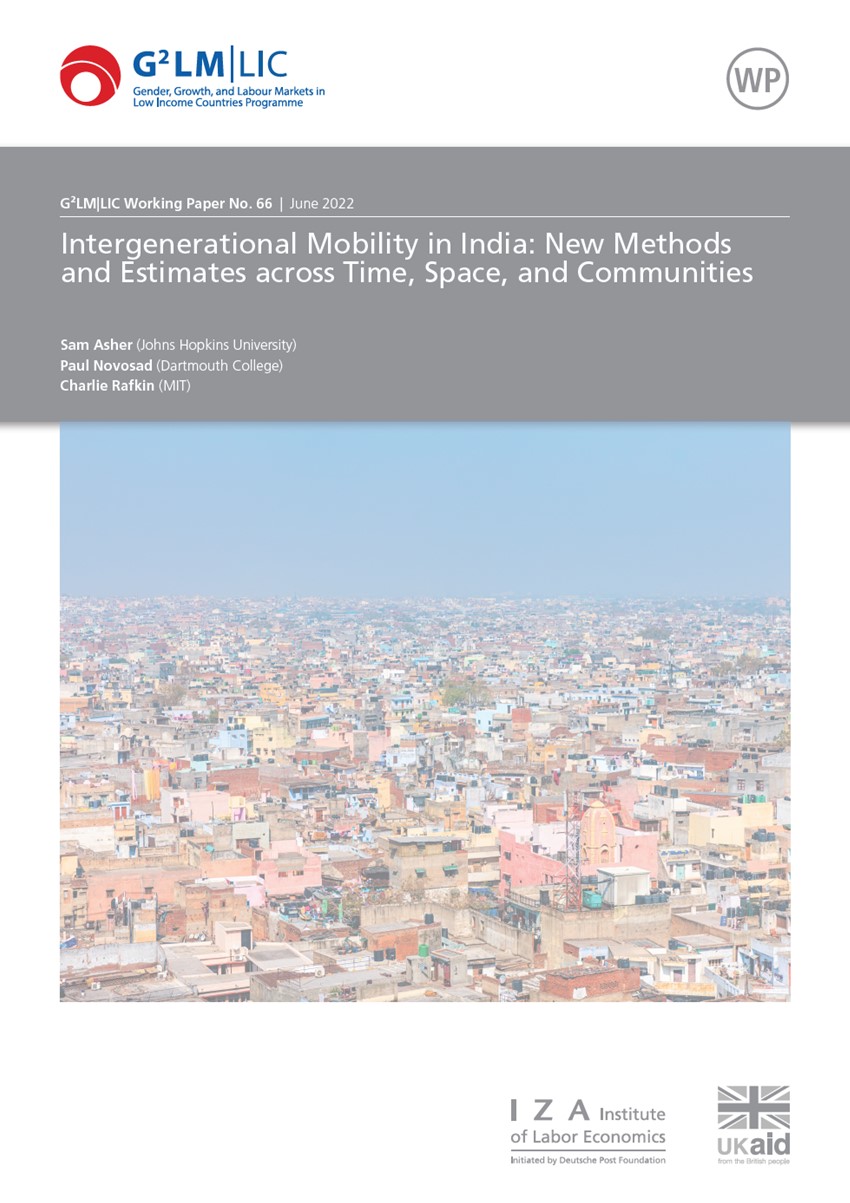We study intergenerational mobility in India over time, across groups, and across space. We show that the modern set of rank-based mobility measures can be at best partially identified with education data. We develop a new measure of upward mobility that works well under data constraints common in developing countries. We find that intergenerational mobility in India has been constant and low since before liberalization. Among boys, rising mobility for Scheduled Castes is almost exactly offset by declining mobility among Muslims, a comparably sized group with few constitutional protections. Mobility among girls is lower, with less crossgroup variation over time. Mobility is highest in places that are southern, urban, and have high average education levels. A natural experiment suggests that affirmative action for Scheduled Castes has substantially improved their mobility. Our measures are relevant for the study of mobility in poorer countries and in historical contexts.

Intergenerational Mobility in India: New Methods and Estimates across Time, Space and Communities
- Sam Asher
- Paul Novosad
- Charlie Rafkin
- Charlie Rafkin